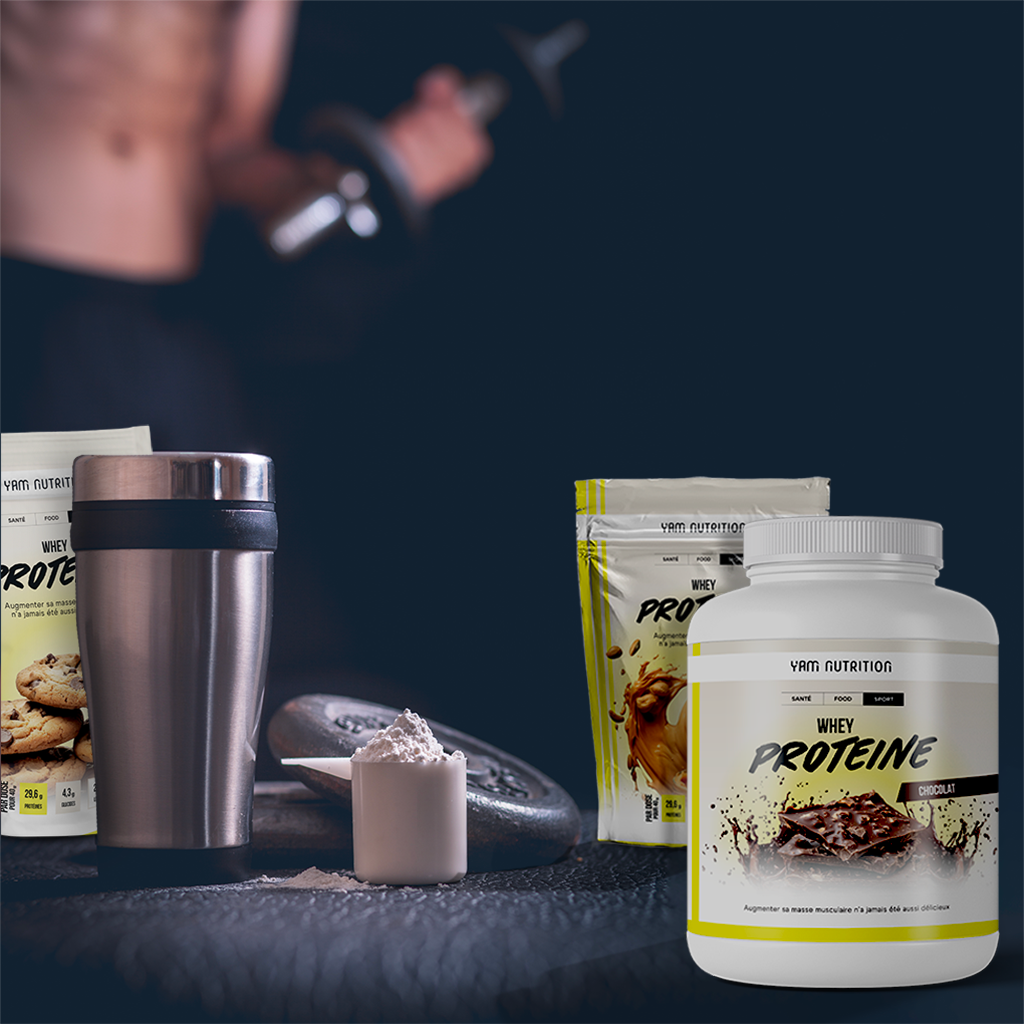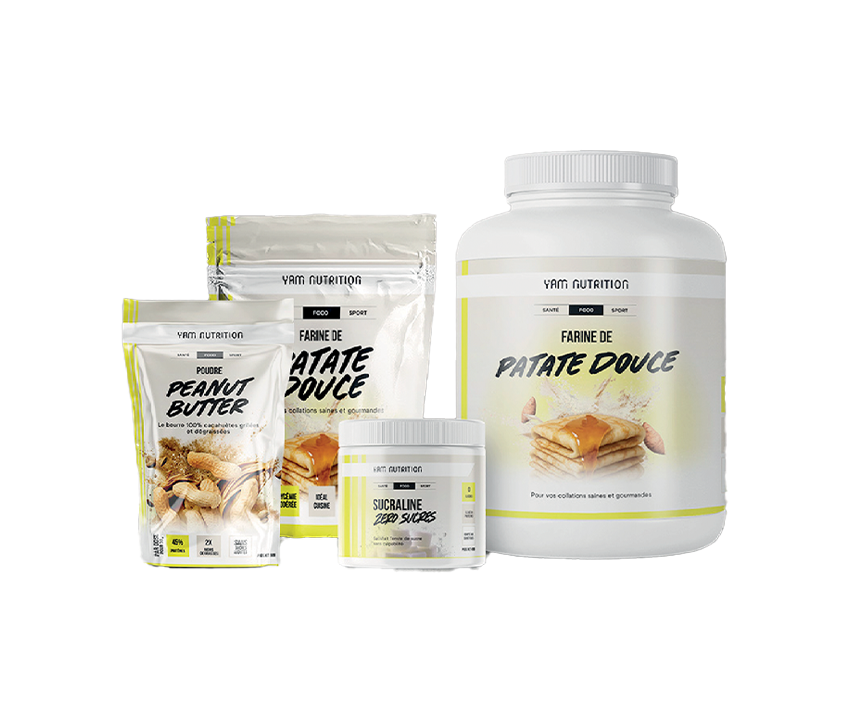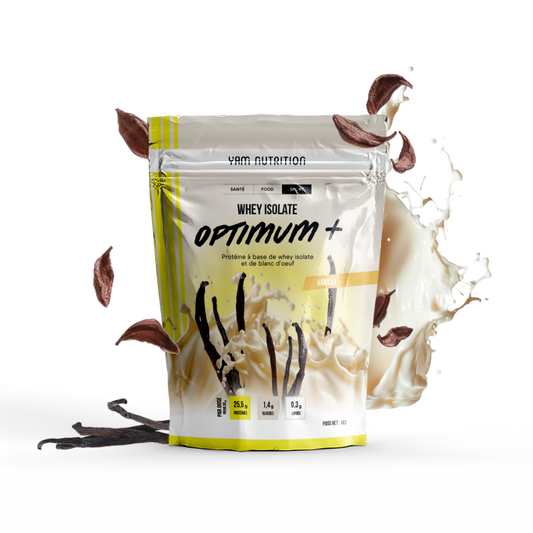Whey or whey

Sommaire
- Whey is a protein derived from milk that is assimilated very quickly.
- Whey has the highest biological value of all proteins
- Whey concentrate, a protein of optimal nutritional quality for bodybuilding athletes
- Whey isolate is filtered a little more thoroughly but is also more expensive to purchase.
- Whey Isolate, the quality of native proteins of French origin
Whey Isolate Premium , a high nutritional quality whey isolate…
Most bodybuilding and strength athletes (especially younger ones) are very familiar with “Whey,” one of the two proteins in milk. In French, “ Whey Protein ” is nothing other than the whey protein found in any cow’s milk. It is also called petit-lait, a completely soluble protein liquid with a slightly yellowish appearance, particularly rich in free amino acids and peptides. It is currently the best-selling milk protein powder in the world.
As you know, milk contains two types ofproteins , casein on the one hand and whey on the other hand. This protein is the majority because it represents 80% of the total protein in milk, while whey only accounts for 20% . Casein is made up of micelles. These are groups of dense and compact proteins and peptides. We then speak of micellar casein. It is also linked to calcium and other minerals, so it is simply proteins linked to calcium. We then speak rather of calcium or sodium caseinate. As for whey, its exceptional richness in nitrogenous substances has made it the first protein powder for strength and bodybuilding sports.
Whey is a protein derived from milk that is assimilated very quickly.
Unlike casein, whey is a less dense form of protein, made up of peptides, macropeptides, and free amino acids. A protein group with a smaller quantity, whey's structure and amino acid conformation allow it to be assimilated very quickly. This light protein is very quickly digested. Generally, the amino acids and peptides in whey are no longer found in blood plasma. one hour after its assimilation .
Its rapid assimilation allows you to benefit from a rapid intake of amino acids before or after training. Thus, Whey can be taken one hour before or just after weight training in order to maintain or facilitate the return of anabolism and protein synthesis. Theoretically, its rapid assimilation allows you to reduce the catabolic impact of intense training by providing amino acids to your body, L-Glutamine , BCAAs and Leucine in particular. As you know, Glutamine and Alanine are two glucoforming amino acids that are easily metabolized into glucose or glucose derivatives such as alpha ketoglutarate that join the Krebs cycle and the formation of ATP.
Whey has the highest biological value of all proteins
The success of Whey is also due to its exceptional richness in amino acids, L-Glutamine and L-Leucine in particular. The amino acid of anabolism par excellence, Leucine is also insulinogenic . That is to say, it causes a peak in insulin and assimilation of the amino acids and nutrients that accompany it, as glucose would. Whey also has the highest biological value of all protein sources , even for concentrate. In this case, Whey is an ideal source of protein to take after training, even if the presence of carbohydrates is also desirable to replenish glycogen. It is on this principle that we have developed Big Yam, a mixture of Whey and sweet potato flour . Big Yam is ideal for gaining mass while Whey is best suited for muscle definition and gaining lean muscle .
Whey concentrate, a protein of optimal nutritional quality for bodybuilding athletes
There are several types of whey protein available on the dietary supplement market. In terms of nutritional quality, whey concentrate already provides an exceptional supply of amino acids and peptides. Most other animal-based protein powders can't compete in terms of their richness in amino acids and peptides. There Whey concentrate concentrated is produced by filtration to obtain the vast majority of nitrogenous nutrients ( amino acids and peptides ) of the protein from fresh milk. Its price/quality ratio is exceptional compared to other protein powders. It will already suit most strength, bodybuilding or endurance athletes looking for a high-quality protein source. The nitrogen content of this protein already allows maintaining or stimulating muscle anabolism more effectively. Whey is naturally rich in peptides and free amino acids.
Whey isolate is filtered a little more thoroughly but is also more expensive to purchase.
Whey isolate is obtained from a slightly finer filtration, delivering a slightly higher quantity of L-Cysteine and L-Leucine. A little richer in peptides and amino acids than the concentrate, the isolate is also more expensive than the concentrated whey. The filtering process requires a slightly more complex filtration than for an isolate. As for the whey hydrolyzate, it is a protein filtered by enzymatic hydrolysis. This pre-digestion process will result in a maximum release of peptides for record assimilation. Note that hydrolyzed casein is now patented, it is Peptopro® . It is a casein hydrolyzate developed by DSM , a giant in the food industry and innovation in sports nutrition.
Whey Isolate, the quality of native proteins of French origin
Yam Nutrition has chosen to offer you its Whey Isolate , a dairy whey of French origin . Dairy protein means that fresh filtered milk was used as the raw material for the production of the protein powder. In contrast, low-end and non-native whey are often derived from the extraction of whey resulting from cheese production. These whey proteins are called cheese-like. On the other hand, Whey Isolate contains more than 80% Whey , an exceptional level and higher than the protein levels generally found in standard nutritional quality Whey.
At Yam Nutrition , we have chosen to offer you a limited choice of proteins and only offer you supplements. quality protein.
Eric MALLET
Spécialiste en Nutrition Sportive





